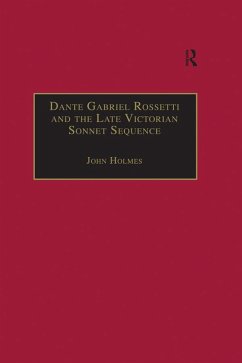
Ashgate Critical Essays on Women Writers in England, 1550-1700 (eBook, PDF)
Volume 3: Anne Lock, Isabella Whitney and Aemilia Lanyer
Redaktion: White, Micheline
Versandkostenfrei!
Sofort per Download lieferbar
42,95 €
inkl. MwSt.
Weitere Ausgaben:

PAYBACK Punkte
21 °P sammeln!
Anne Lock, Isabella Whitney and Aemilia Lanyer have emerged as important literary figures in the past ten years and scholars have increasingly realized that their bold and often unorthodox works challenge previously-held conceptions about women's engagement with early modern secular and religious literary culture. This volume collects some of the most influential and innovative essays that elucidate these women's works from a wide range of feminist, literary, aesthetic, economic, racial, sexual and theological perspectives. The volume is prefaced by an extended editorial overview of scholarshi...
Anne Lock, Isabella Whitney and Aemilia Lanyer have emerged as important literary figures in the past ten years and scholars have increasingly realized that their bold and often unorthodox works challenge previously-held conceptions about women's engagement with early modern secular and religious literary culture. This volume collects some of the most influential and innovative essays that elucidate these women's works from a wide range of feminist, literary, aesthetic, economic, racial, sexual and theological perspectives. The volume is prefaced by an extended editorial overview of scholarship in the field.
Dieser Download kann aus rechtlichen Gründen nur mit Rechnungsadresse in A, B, BG, CY, CZ, D, DK, EW, E, FIN, F, GR, HR, H, IRL, I, LT, L, LR, M, NL, PL, P, R, S, SLO, SK ausgeliefert werden.











![The Poets, Isabella Whitney, Anne Dowriche, Elizabeth Melville [Colville], Aemilia Lanyer, Rachel Speght, Diane Primrose and Anne, Mary and Penelope Grey (eBook, PDF) Cover The Poets, Isabella Whitney, Anne Dowriche, Elizabeth Melville [Colville], Aemilia Lanyer, Rachel Speght, Diane Primrose and Anne, Mary and Penelope Grey (eBook, PDF)](https://bilder.buecher.de/produkte/49/49364/49364965n.jpg)

